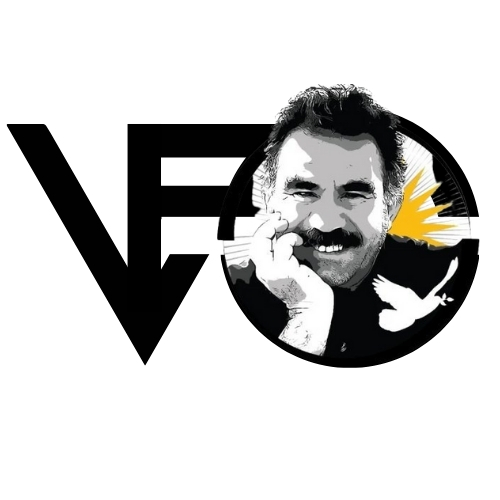
As a member of the Council of Europe, Turkey is a signatory to the European Convention on Human Rights, and so subject to the European Court of Human Rights as a court of last resort.
The court’s first intervention into Abdullah Öcalan’s case, and the only one which Turkey has respected, was their emergency request that Turkey should not implement the death penalty while the court heard Öcalan’s appeal against his conviction. The European Court’s first judgement on Öcalan’s case was issued in 2003, with a final judgement from the court’s Grand Chamber in 2005. Before either of these, Turkey had abolished use of the death penalty in peace time, and Öcalan’s sentence had been commuted to life imprisonment.
The European Court’s Grand Chamber, in agreement with the 2003 ruling, found that Öcalan had not been given a fair trial. They found that proceedings violated convention requirements on several grounds, including restrictions on access to his lawyers, and insufficient time for analysing the case file. Despite this, Turkey has not been made to retry him.
The Council of Europe has no mechanism for enforcing its court’s decisions against member countries, but the Council of Ministers, made up of foreign ministers from member countries, or their deputies, can decide to put pressure on the country concerned by limiting its involvement in Council business, and even ultimately by expulsion. This is a long process in which the offending country is given many opportunities to make good on its actions. It also relies on the will of other governments to pursue the issue, and that depends on political considerations. There is little political will to follow up on Öcalan’s case.
The European Court has also examined Öcalan’s treatment by the prison system. Applications made by Öcalan in 2003, 2004, 2006 and 2007 were finally brought to judgement in March 2014, when the court ruled that his life imprisonment without any possibility of conditional release is a violation of article 3 of the European Convention, which states that ‘no one shall be subjected to torture or to inhuman or degrading treatment or punishment’. Life without parole denies the right of hope. Turkey has not acted on this ruling.
The same court decision also ruled that Ocalan’s prison conditions prior to 2009 were in violation of article 3, but it was satisfied that the problems had been overcome with the building of the new prison with additional inmates. Although the ruling was made in 2014, the hearings for it finished in March 2012, and the judgement makes almost no reference to Öcalan’s situation since the visit by the Committee on the Prohibition of Torture (CPT) in 2010. It hardly mentions the cutting off of communications with his lawyers from July 2011.
It took a further seven years for the court’s judgement to reach the agenda of the Committee of Ministers, in December 2021. The deputies then urged Turkey to ‘adopt without further delay the measures required to bring the current legislative framework into compliance with the standards set out by the Court’, and they invited the Turkish authorities to submit a progress report by the end of September 2022. The Turkish government’s response came late and made it clear that they had no intention of abiding by the court’s decision and changing their treatment of prisoners. This should be followed up by the Committee of Ministers, but they have shown no urgency to put it on the agenda.
Formal acceptance of the possibility of parole, in compliance with the European Court, would not actually make it any more likely that Öcalan would be released under Turkey’s current political circumstances and political capture of the judiciary. The official report from the Committee of Ministers records that the deputies ‘stressed, as underlined also by the European Court, that the introduction of a review mechanism implies the possibility to apply for release on parole after a certain minimum term of detention, but not necessarily to be released if the competent judicial authorities conclude that the person concerned still poses a danger to society.’ However, the symbolism of locking someone up and throwing away the key, is very potent.
Öcalan’s lawyers have highlighted that the conditions brought in for Öcalan have become a template for the mistreatment of other prisoners, and the deputies also asked Turkey to inform them of the total number of people currently serving irreducible life sentences. (We don’t have exact figures but there were believed to be around 2,500 in 2014.)
In 2011, Öcalan’s lawyers made an urgent application to the European Court over Turkey’s refusal to grant them access to their clients. It took the court eight years to begin the procedure of requesting a response to their accusations from the Turkish Government. The case is still pending.
In November 2022, the European Court agreed to hear the case submitted by Öcalan’s lawyers against Greece. The lawyers argue that Greece breached the European Convention on Human Rights when they handed Öcalan over to the Turkish authorities in 1999.

